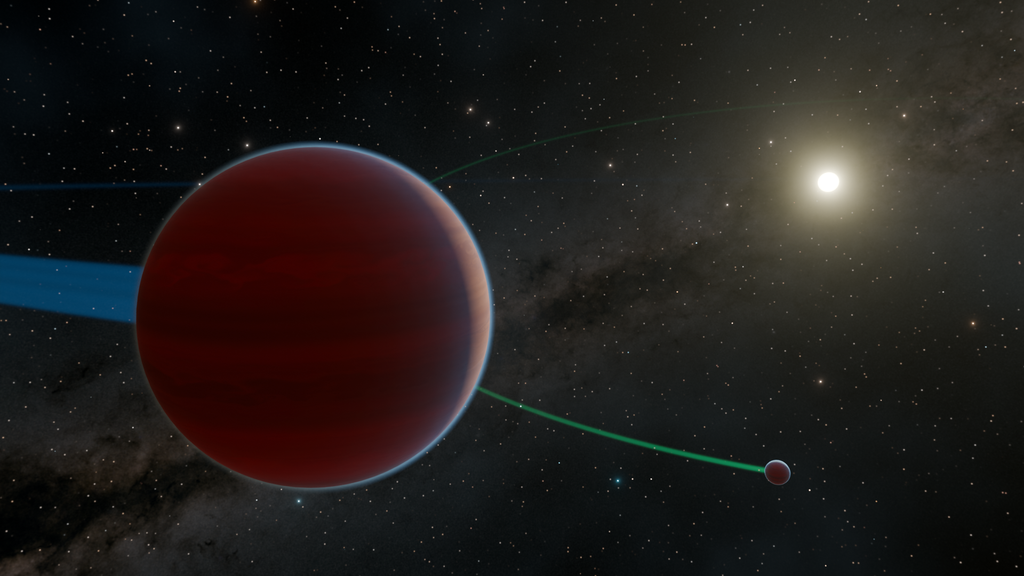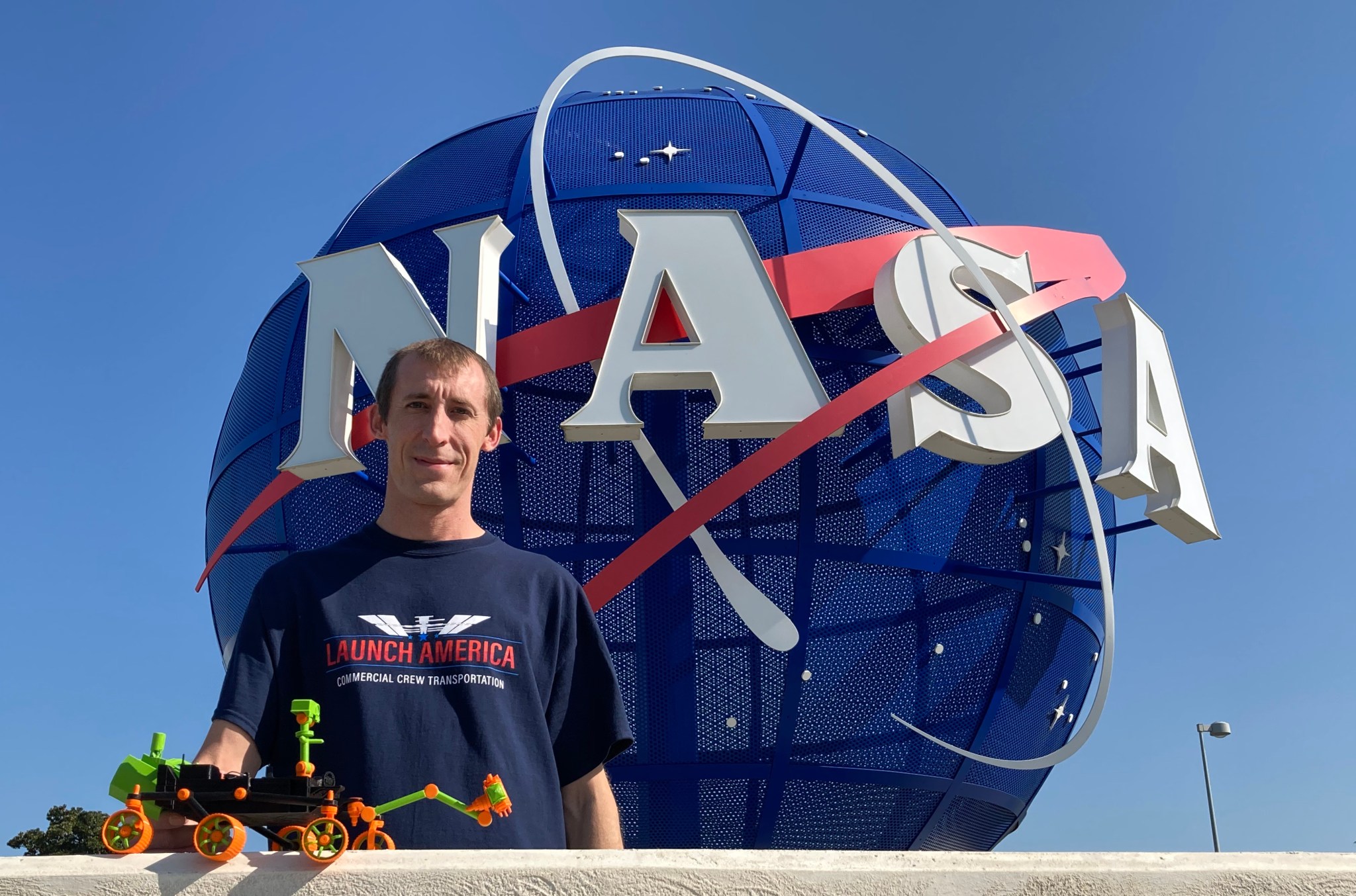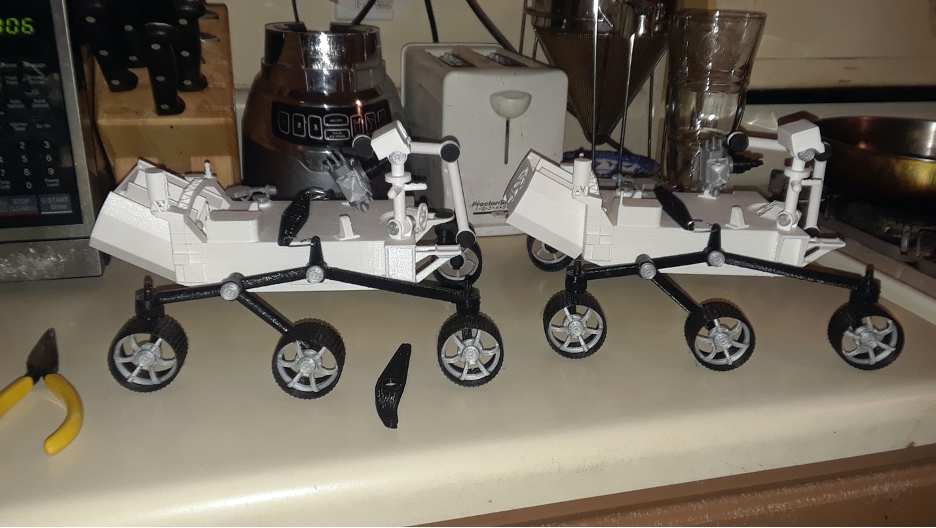David Tucker had spent nearly 20 years cooking at restaurants and hotels, with the last eight spent as a sous chef. “When everyone else is excited for a holiday and saying, ‘Yay! It’s Thanksgiving!’ I would think, “Okay so that just means I get to work twice as hard now.” He was in his mid-30’s when he realized he just wasn’t happy and wanted more for himself.
So, he enrolled at Thomas Nelson Community College (TNCC) on a whim. “It was kind of daunting at first, being out of school for that long. And you don’t even write or use a computer when you’re working in the kitchens, it’s just non-stop hands-on work.” Still, he knew he wanted to change his own trajectory somehow. “I wasn’t even sure about what major to take. I knew I was good with my hands, putting things together, so I decided on Mechanical Engineering Technology. I thought there would always be a need for engineering.”
When he took that path he never thought a career at NASA was a possibility, until a teacher came in one day and encouraged students to apply for the STEM Takes Flight program https://vsgc.odu.edu/stemtakesflight/.
The STEM Takes Flight Program is a Virginia Space Grant Consortium (VSGC) program undertaken in partnership with NASA Langley and NASA Wallops that offers Virginia Community College students the opportunity to participate in research at NASA under the guidance of a NASA Research Advisor. The program, now in its seventh year, began as a partnership between the VSGC and NASA Langley as a collaborative effort created by then Engineering Directorate Director and current Langley Center Director, Clayton Turner, and VSGC Director Mary Sandy.
“The impact on these student researchers has been profound in building their confidence in their STEM skills and ability to do research as well as helping them to determine their career paths,” says Mary Sandy. “Students consistently tell us that the experience offered by STEM Takes Flight has been a life changer for them.”
The program grew to include NASA Wallops and the partnership and sponsorship of the Virginia Community College System (VCCS) through its Chancellor Glenn Dubois. Through this partnership the program has placed 151 students to date in NASA research experiences.
“I’m a huge fan of the STEM Takes Flight program,” says Chancellor Dubois. “I have seen hundreds of intern programs in my career but nothing like STEM Takes Flight. It Is truly a launch pad for our students.”
Community college students are often non-traditional in that they are pursuing their higher education degrees later in their lives. Many of the students have gone on to NASA and VSGC internships or entered NASA’s Pathways Program. One has been hired by NASA and six have been employed by NASA contractors.
Now, instead of working hands-on in a kitchen, Tucker is exploring hands-on technologies and research at NASA Langley. “It gave me the courage and motivation to keep applying for more.” After the program he applied for a NASA internship, and worked in the Systems Integration and Test Branch working on schematics for a nitrogen system. The task required a lot of technical knowledge and attention to detail. His mentor helped him and encouraged him throughout the process. “I knocked it out of the park! That showed me I could work on something very technical and get through it,” Tucker said.
His next internship opportunity brought him to work in the Fabrication branch at NASA Langley. He had just started to learn about 3D printing technology when the world shut down with COVID-19. Tucker noticed a difference in the caring work culture at NASA during the crisis from the top down. “It’s not like the rest of the world. They just want the best for their people.”
The team spirit gave him a new sense of self pride. He was allowed to continue working from home using a small 3D printer to continue creating models like the Mars Perseverance rover.
Nancy Holloway, the Fabrication Branch Head, recognized the spark of interest in the intern, having made a career change herself from a non-technical to a technical position at NASA Langley. “David Tucker has flourished as a NIFS intern technician. He has made a number of impressive miniatures including CALIPSO, CLARREO, and Mars 2020 Perseverance rover models.”
With a little perseverance of his own, Tucker has just finished his associate degree from Thomas Nelson and is working online to finish his bachelor’s degree in Mechanical Engineering Technology. But being a remote student means he could apply to work at any NASA Center across the U.S. and still finish his course work unhindered by location. “This is where I belong,” says Tucker. “I want to spend the rest of my career here at NASA.”
Meghan Guethe
NASA Langley Research Center

























